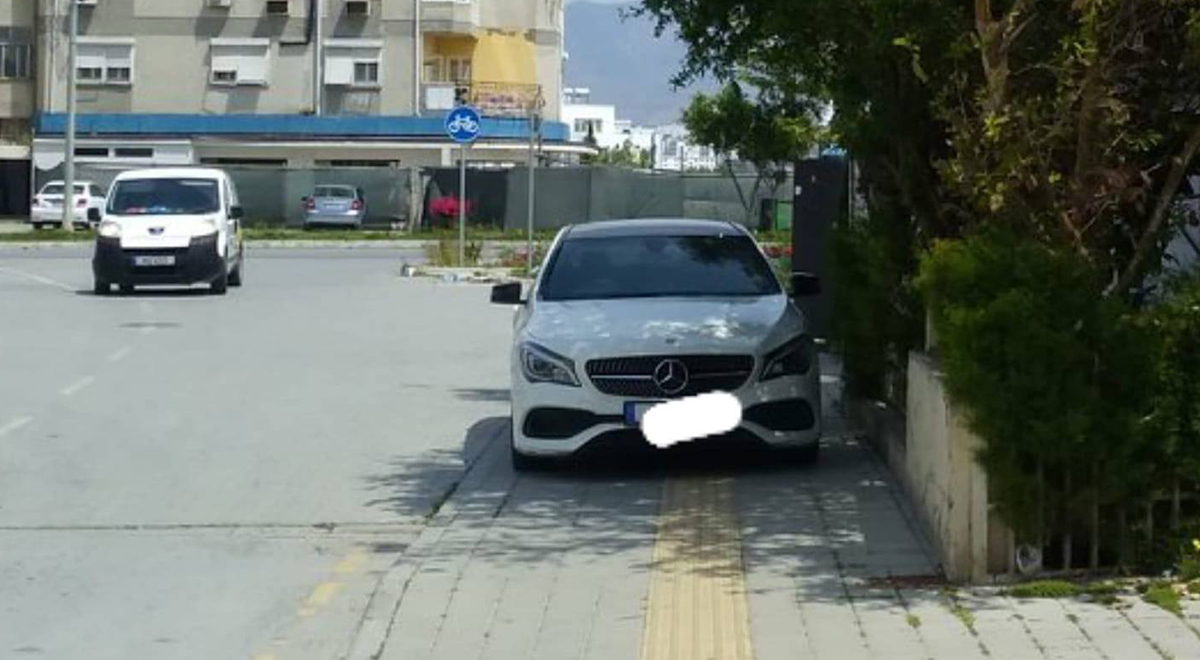Is it a Utopian thought for the Northern part of Cyprus to reduce the use of motor vehicles, to leave the streets to pedestrians and cyclists and then to improve public transportation?
Prof.Dr. Şebnem Hoşkara
Director, EMU Urban Research and Development Center & Faculty of Architecture Professor
Despite its natural beauty and historical wealth, the quality of life of the environment we live in at the North of Cyprus is unfortunately far behind the level of modern countries. Cities developing in an unplanned way, buildings that are unfinished or idle, streets without pavements or with cracked pavements, traffic intensifying day by day, polluted seas, rural areas with distorted developments, historical urban landscape areas that are not preserved and revitalized and many other urban and environmental problems keep our cities further and further away from the concepts of modern urban and urbanization concepts such as 'livability, sustainability, smart city, healthy city, resilient city'.
In all these conditions, when concepts such as 'urban health' and 'inhabitant health' have become more prominent due to Covid-19, we have to revisit the future of our cities and living environments, and more importantly, we have to do it in a different way than before. The period of "don’t go out and #stayhome except for urgent needs" we are experiencing due to Covid-19 will perhaps come to an end after some time or will perhaps disappear slowly. However, the Covid-19 threat will still exist. Despite this situation, our local governments, as in many cities of the world, need to take short-medium-long term measures allowing us to maintain our “social distance” while using our streets and public spaces. In this context, it has been announced that, for example, in Milan, Italy, one of the countries that Covid-19 has affected the most, arrangements will be made to allow increased bicycle and pedestrian use by reducing motor vehicle traffic on the streets for 35 kilometers during the summer period. Similarly, in some American cities such as Boston, Minneapolis, Oakland, which have also been severely affected by Covid-19, the streets have already been closed to vehicle traffic and, pedestrians and cyclists have been provided with a more comfortable environment. Considering both the current conditions and the future of our cities, medium and long-term measures aiming at reducing the use of private vehicles / cars and switching to public transportation should be initiated in all cities at the Northern part of Cyprus.

This may seem too Utopian for now. However, the rapid increase in the number of private vehicles makes our cities, which have already grown unplanned, increasingly uninhabitable. There is not enough space for people to walk on the streets where everyone is driving. Excessive vehicle use also leads to air pollution. Throughout history, crisis situations pertaining to environment and urban areas have always been challenging for humanity and communities regarding the better use of resources, the establishment of more cooperation, and provision of more creative solutions to problems. The acquisition of such social and urban benefits from the Covid-19 era may be the positive gains left to us from these difficult and troubled days. It is both our and the central and local governments’ duty to turn this period into an opportunity for the future of our cities and urban spaces.
Creating solutions facilitating social distance in our cities against the Covid-19 crisis, transforming our streets into more pedestrian, bicycle friendly, and walkable places are all crucial for the short-term processes and long-term sustainable future of our cities. Cities with reduced vehicle traffic and modern public transportation vehicles, allowing the mobility of pedestrians and the use of bicycles, enabling social interaction while maintaining social distance will also offer living spaces with reduced air pollution and will have healthier inhabitants. With this understanding, besides the development of public transportation, our existing streets should be redesigned with contemporary urban design solutions facilitating pedestrian and bicycle mobility. Urban policies enabling such arrangements should be determined and necessary legal arrangements should be pursued.
Every step towards increasing the resiliency of our cities against any possible negative conditions in the future will provide not only environmental but also social and economic benefits and is of utmost importance in ensuring the survival of urbanized societies in the future. In this respect, all necessary institutional and legal regulations and policies should be urgently prioritized by the central government and local governments in line with scientific data and facts.
This article was published on Yenidüzen newspaper on 26th April 2020.
http://www.yeniduzen.com/covid-19-sonrasinda-sokak-mekaninin-yeniden-dusunulmesi-126422h.htm